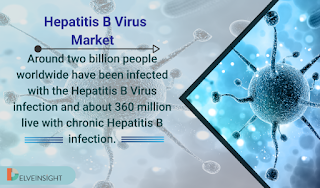PD-1 /PD L-1 checkpoint inhibitor is the new hope for Cancer Treatment
What are Checkpoint inhibitors?
Checkpoint inhibitors are a group of proteins that can treat
cancer potentially. Checkpoint inhibitor therapy is a form of cancer
immunotherapy that targets immune checkpoint.
Immune checkpoints are the immune regulators, as the name
denotes itself, that regulate or control the activity of immune cells, enhancing
the self-tolerance of the immune system. These inhibitors when stimulated hampers
the immune response to an immunologic stimulus.
Checkpoint Therapy to combat Cancer
Some cancerous cells do protect themselves from getting
attacked by activating the immune checkpoint targets. Once activated, they
block the inhibitory checkpoints, and restore the functioning of the immune
checkpoints.
CTLA-4 inhibitors, PD-1 inhibitors and PD-L1 inhibitors are
the checkpoint inhibitors that are used to treat cancers.
PD-1 inhibitors and PD-L1 inhibitors are a
group of checkpoint inhibitors that are present on the surface of the cell.
These immune checkpoint inhibitors are recognized as the emerging front-line
treatment for the cancer.
The first anti-cancer drug developed to target immune
checkpoint was ipilimumab, a CTLA4 blocker, which was approved in the US
in the year 2011.
PD-1, a
checkpoint protein present on immune T cells, normally prevent the attack by
T-cells on other cells in the body. When PD-1 attaches to PD-L1, it releases a
protein telling T-cells to not attack the other cells.
This property is
highly utilized by some cancerous cells as they have large amounts of PD-L1,
thus evading the attack.
So, basically PD-1 and PD-L1 switches off the T-cells.
Some of the therapies developed using PD-1 checkpoint
inhibitors are Opdivo and Keytruda.
Opdivo
Opdivo (Nivolumab), a targeted therapy, is a human
programmed death receptor-1 (PD-1) blocking antibody.
Opdivo has been
approved for the
treatment of unresectable or metastatic melanoma, advanced renal cell cancer
in, Hodgkin’s lymphoma (cHL), locally advanced or metastatic urothelial
carcinoma, metastatic small cell lung cancer (SCLC), unresectable or
metastatic, microsatellite instability-high (MSI-H), hepatocellular cancer
(HCC) under specific conditions.
Keytruda
Keytruda therapy is
administered when the tumour tests positive for PD-1.
Keytruda has been
recommended for skin cancer called melanoma; a kind of lung cancer called
non–small cell lung cancer (NSCLC), head and neck squamous cell cancer (HNSCC),
classical Hodgkin lymphoma (cHL) primary mediastinal B-cell lymphoma (PMBCL), Advanced
urothelial cancer, advanced gastric cancer and others.
Atezolizumab
Atezolizumab is a drug which
binds to a protein called PD-L1 and is traded under the name Tecentriq. It has
been approved for the treatment of locally advanced or metastatic urothelial
carcinoma.


Water Hack Burns 2 lb of Fat OVERNIGHT
ReplyDeleteAt least 160k women and men are hacking their diet with a simple and secret "liquid hack" to lose 1-2 lbs every night as they sleep.
It is scientific and works every time.
This is how you can do it yourself:
1) Take a clear glass and fill it up half full
2) Now learn this amazing hack
so you'll be 1-2 lbs thinner when you wake up!